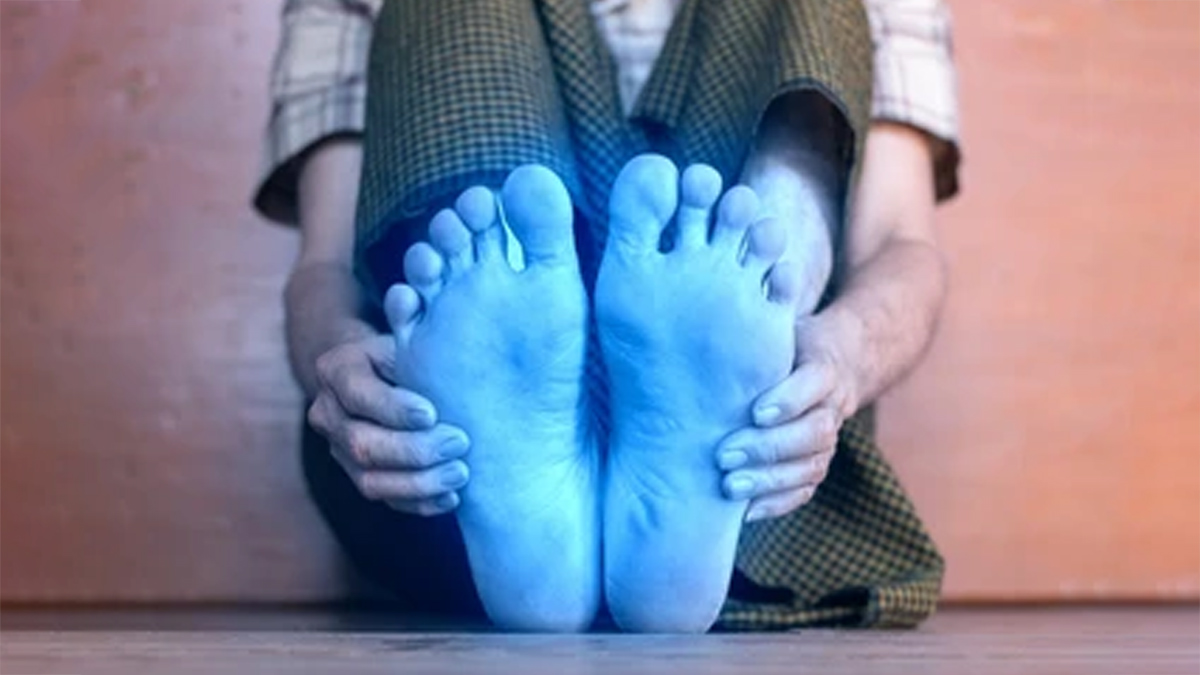
Do your hands and feet feel icy even when the weather isn’t chilly? While occasional cold extremities are common, constantly feeling like your hands and toes are blocks of ice may be more than just poor circulation. And, your body could be sending important signals about overall health.
Table of Content:-
In an exclusive interaction with the editorial team of Onlymyhealth, our expert, Dr Bhumesh Tyagi, General Physician and Internal Medicine Specialist, Shardacare, Health City - Noida, explained the science behind constant cold hands and feet. Here is what he shared with us.
Why Do Hands & Feet Get Cold?
“Your feet and hands are furthest from your heart, so they're usually the first to notice shifts in blood circulation,” explained Dr Tyagi. When your body focuses on keeping essential organs warm, blood vessels in the extremities narrow, causing them to feel chilly. However, if this repeatedly occurs, there may be other reasons.
Common Causes You Need to Be Aware Of
According to Dr Tyagi, some common causes of cold hand and feet that you need to be aware of include:
1. Poor Circulation
Limited blood flow caused by habits of life, prolonged sitting time, or even cardiac conditions may make your extremities cold.
Also Read: 3 Menstrual Hygiene Tips To Follow During Monsoon

2. Anaemia
Decreased iron levels decrease oxygen circulation in the blood, making you experience always-cold hands and feet along with weakness.
3. Thyroid Problems
Underactive thyroid (hypothyroidism) decreases metabolism, thus less production of heat, mostly experienced first in your extremities.
4. Raynaud's Syndrome
This condition triggers blood vessels to react too strongly to cold or stress, causing fingers and toes to turn white, blue, or numb.
5. Diabetes
Diabetes-related poor circulation and nerve damage may cause chronic feelings of cold hands and feet.
6. Vitamin Deficiencies
Vitamin deficiencies of vitamin B12, magnesium, or other vitamins can impair nerve function and circulation.

When Should You Be Concerned?
If cold hands and feet are accompanied by such symptoms as numbness, tingling, changes in skin colour, dizziness, or sudden weight loss/gain, it's worth speaking with a physician. Ongoing cold extremities may occasionally indicate cardiovascular or metabolic complications that should receive medical treatment.
What You Can Do Right Now
However, Dr Tyagi further explained what to do when you feel your hands and/or feet being cold:
- Be active to improve circulation.
- Wear gloves, socks, or thermal clothing to keep warm.
- Consume iron- and B12-fortified foods such as spinach, lentils, fish, and eggs.
- Manage stress, as it can cause blood vessel narrowing.
- Don't dismiss routine health check-ups.
If your hands and feet are consistently cold, don't dismiss it as bad circulation. It might be your body's subtle way of suggesting there is something more going on. Paying attention to these whispers early can serve to safeguard your long-term health.
How we keep this article up to date:
We work with experts and keep a close eye on the latest in health and wellness. Whenever there is a new research or helpful information, we update our articles with accurate and useful advice.
Current Version